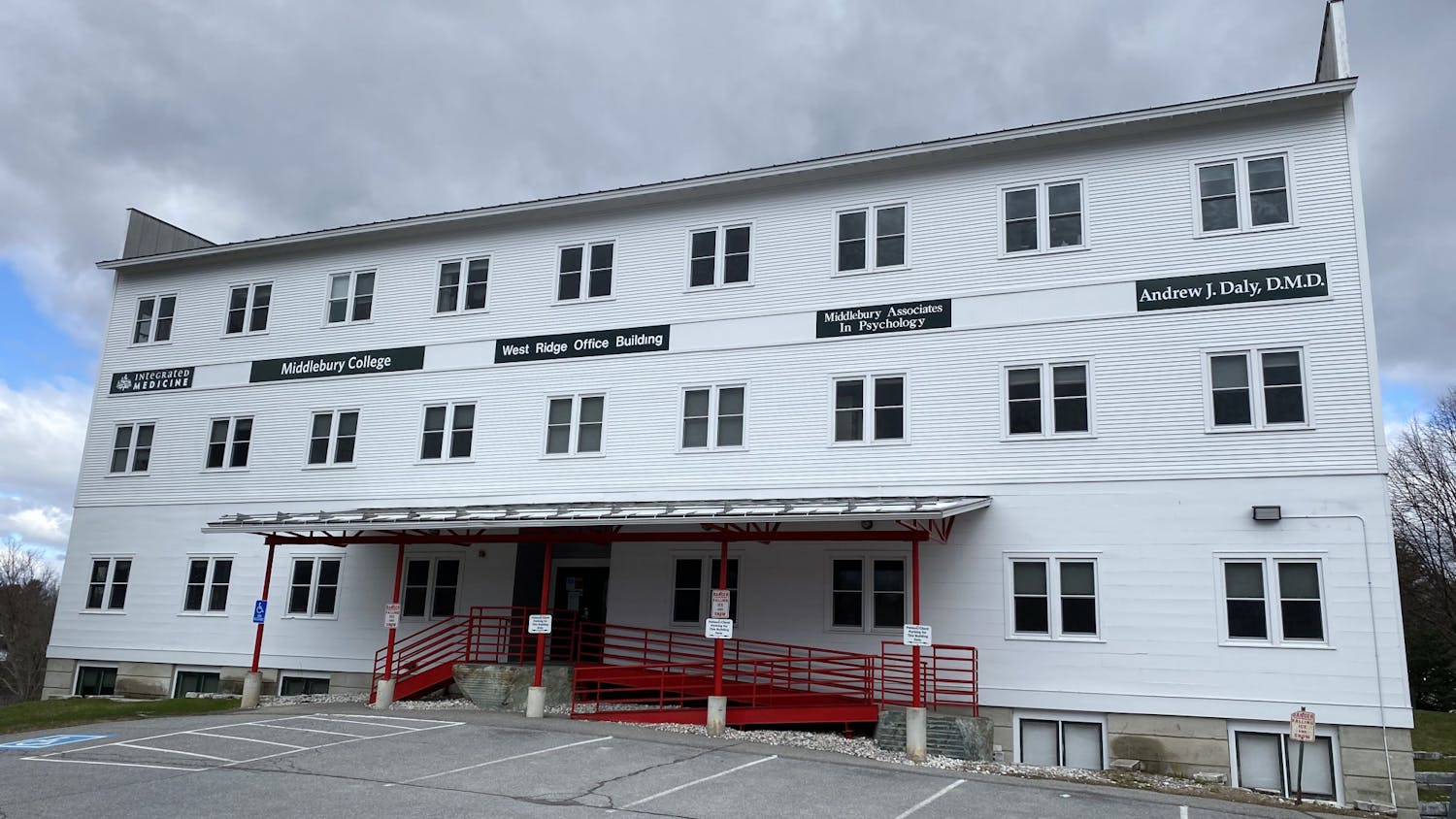At this point in the semester, we had every intention to be finished with our regular coverage — including editorials — until J-Term. And yet somehow we have found ourselves here, wondering how to explain to our parents why we were sent home from a campus with 70 cases without mandated exit testing. Without mandated testing after Thanksgiving break. Without mandated testing for all students for the entirety of the semester.
All at once last Thursday, the sense of normalcy and fulfillment we had worked so hard to attain came crashing down. After everything the college community sacrificed last year to keep cases nearly non-existent, we’ve lost all of the results of that hard work in a matter of days. Now we’re left with the remnants of it all — posters for events that never came to fruition, dining halls devoid of crowds and laughter, packed cars leaving campus a week early.
Middlebury has the opportunity to learn from the mistakes of this semester. The college must implement regular mandatory testing for all students in J-Term and spring. Administrators should be transparent about the logistics of tracking cases and the college’s threshold for upping outbreak mitigation strategies. It’s the least they can do to ensure the health and safety of this community and to begin regaining our trust.
We can’t seem to find any sense in what’s happened in the past week. This seems like it should have been avoidable, instead of publicized in the likes of The New York Times, The Boston Globe and Forbes.
Middlebury remains the only NESCAC school besides Trinity that did not implement weekly or twice-weekly testing for the entire student body this fall. Not only that, we didn’t adjust testing protocols when Covid-19 cases in the state spiked in November. Nor did we have any sort of mandatory testing plan to help ensure a safe return to campus after Thanksgiving break. And this week, when cases on campus skyrocketed to unheard of levels, we still did not mandate testing.
At this point, we’re exhausted from asking over and over and over again to be tested regularly — because it already seems so obvious. The Campus’ reporters were told early in the semester that the college had the resources and the ability to test us if deemed necessary. But what is the threshold for “necessary”? Apparently we didn’t reach it with record-high case counts in Addison County, or when we returned to campus from around the country after Thanksgiving. Where do we draw the line?
Safety aside, this disaster — which the college had the opportunity to prepare for and prevent — instead disrupted syllabi that professors spent their summers devising and canceled various student organization events, many of which had been on hiatus for two years. It feels like an effort to project normalcy was prioritized over our health and our ability to follow through on academic and extracurricular pursuits.
For those on campus in March 2020, these sudden feelings of loss and grief feel all too familiar — like the ground being ripped out from under us. But back then, our departure from campus was out of our control; we were among the millions of students returning home unexpectedly. That is no longer the case. This time around, our institution had the resources and the time to prepare but made the choice to put our semester at risk.
Additionally, this sudden change of events has borne a disproportionate impact on members of our community who cannot afford to promptly change their plane tickets or who do not live close enough to depart campus. Middlebury did not offer financial assistance upfront — putting the onus on students to navigate this on their own. Our institution’s response to a crisis cannot be something that exacerbates pre-existing inequities. While some students who tested positive can go home and have home-cooked meals dropped off at their bedroom door, others have to isolate on an empty campus past the end of the semester.
What’s more, this outbreak exposed that the college has no tricks up their sleeve in regards to handling an outbreak, contrary to what we were made to believe. We were very much under the impression that Middlebury had other options that came before “everyone please leave campus ASAP” in the Covid-19 playbook. Transitioning from zero limitations to a rapid emptying of campus doesn’t strike us as the most logical order of operations, especially in regard to bringing Covid-19 back to our hometowns and family members. Then again, the most logical approach would have been a proactive one that involved mandated, comprehensive testing. But here we are.
We deserve answers. The administration needs to tell us why they did not institute surveillance testing this term, and why they have not yet announced if they will begin doing so in J-term. If they believe that they made a mistake, they need to tell us so. At this point, transparency and clarity is the bare minimum.
Less than two weeks ago, we wrote that “we must take intentional and sustainable actions now to maintain the health of our community while maintaining the possibilities for connection that we’ve had this semester.” We’ve known an outbreak like this was possible, if not likely, but we sorely hoped that for whatever lucky reason it wouldn’t arise. But our luck has run out. The Middlebury administration failed us every single day that they chose not to mandate testing, and the consequences are as evident as they could possibly be. This J-Term and spring, it’s time to start listening to us.



